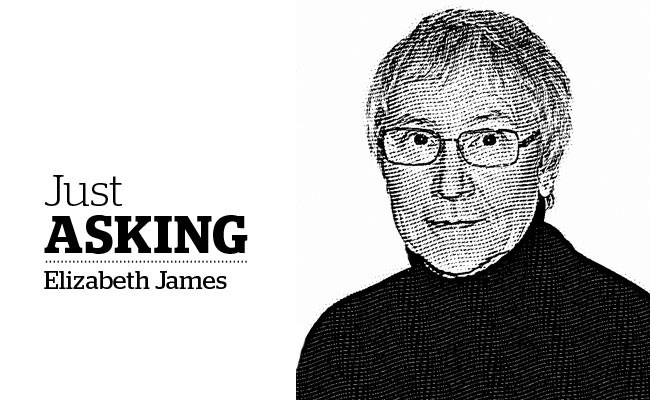“Fundamental freedoms: Section 2(b) Freedom of thought, belief, opinion and expression, including freedom of the press and other media of communication.”
— Canadian Charter of Rights and Freedoms, Constitution Act 1982
In its elaboration of the Charter wording, Heritage Canada says Canadians are free to create and express their ideas, gather to discuss them and communicate them widely to others.
So why is it that, across the country, including here on the North Shore, quality Progressive Conservative candidates have allowed themselves to be barred from debating their party’s election platform at all-candidate meetings?
Most particularly, I’d ask that question of former District of North Vancouver Coun. Mike Little — a man who was always ready to discuss his position on agenda items with his constituents.
But the state of Canada’s tattered democracy goes far beyond the current election campaign. So because hell hath no fury like a woman voter scorned, I hope you’ll forgive me for getting some things off my chest:
Stephen Harper would not be where he is today had he not ridden on the coattails of hundreds of sincere Western Canadians who worked their butts off to get the Reform Party up and running.
In B.C., the impetus for a new federal party came from a succession of scandals in both Liberal and Conservative governments.
It’s safe to say that the party that began in the basement rec room of a Victoria home might never have taken off had a few Albertans not seen its potential and persuaded Preston Manning to seize the opportunity and run with it. The impetus for Albertan voters was their dissatisfaction with the National Energy Program launched in 1980 by then prime minister Pierre Trudeau and his energy minister Marc Lalonde.
Overriding all was that many Western Canadians felt the country was being governed for the benefit of Ontario and Quebec.
North Shore Reformers were glad of the leadership coming out of Alberta and redoubled their efforts to “take back our federal government.” Slogans like The West Wants In, Triple-E Senate and others in like tone were the order of the day. Triple-E, of course, meant Equal, Elected and Effective.
I have no idea when Harper joined the party but my first memories of him saw him at Manning’s right-hand as we worked the hustings to gain membership and work on Reform’s first election campaign.
In hindsight and in light of more recent events, we should have paid him a good deal more attention.
Except to make note of the fact that one of Harper’s earliest promises was that he would no longer engage in the practice of appointing government-friendly individuals to the Senate, I’ll say no more about the people in the Upper Chamber. You have all seen the news ad nauseum.
Suffice it to say, senators are not elected and the place is so riddled with patronage it can no longer be effective as an arm’s-length place of sober second thought and it sure isn’t equal.
As for the other major slogan, you must be the judge as to whether or not the “West” is now “In.”
From where I sit, what I see are scientists being muzzled and/or fired, the Department of Fisheries and Oceans denying biologist Alexandra Morton’s evidence that marine-based fish farms are polluting our pristine waterways, and a total lack of DFO enforcement over what happens to today’s abundant fisheries resource in the Capilano River.
On another front, without needing any inconvenient discussion in Parliament, let alone with British Columbians, Harper was free to announce — in Russia, no less — that his government had signed a 32-year Foreign Investment Promotion and Protection Agreement with China. Since the acronym for that was reduced to FIPA, I imagine the “Protection” part has little to do with protecting Canadian interests.
Lastly — of the big ones — the West certainly had no say as to the benefits or risks associated with the $15.1-billion bid by China’s CNOOC Ltd. for Calgary-based Nexen Inc., which Harper’s government approved. Would we have any voice at all if a Chinese company decided to drill for oil off our coastline? Or would we just have to pay millions in compensation if permission is denied?
Heritage Canada emphasizes, “In a democracy, people must be free to discuss matters of public policy, criticize governments and offer their own solutions to social problems.”
Have you basked in that freedom over the past five to 10 years? Or, when you had the temerity to speak out, did you worry you’d end up on Stephen Harper’s list of “enemies” of his state?
After 16 years with the multi-disciplinary Perinatal Programme of B.C. and later in various endeavours in the growing high-tech industry, Elizabeth James now connects the dots every second Wednesday on local, regional and provincial issues. She can be reached via email at [email protected].



